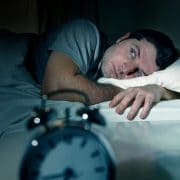Why fasting doesn’t (always) mean going hungry
It’s not just what we eat, but when we eat it.
 The fact that fasting has been around in religion and different cultures for centuries should indicate that it isn’t as hard at it first sounds. Science is now catching up on the powerful health benefits it can offer. It’s not something you need to do daily either, even just once a week is showing to have numerous health benefits.
The fact that fasting has been around in religion and different cultures for centuries should indicate that it isn’t as hard at it first sounds. Science is now catching up on the powerful health benefits it can offer. It’s not something you need to do daily either, even just once a week is showing to have numerous health benefits.
This is known as time-restricted feeding or intermittent fasting.
This requires eating overnight in a 12-hour window.
For example: if you’re someone who wants to eat breakfast at 8am, you would have to eat your last meal/snack of the day before 8pm.
The benefits
Health experts are revealing research on the benefits, including weight loss, diabetes prevention and even better quality of sleep. Findings published in the journal Cell Metabolism, showed that time-restricted feeding* can help:
- aid weight-loss
- manage healthy glucose levels/lowering diabetes risk
- lower blood pressure
- slow down the ageing process
Other benefits may include:
- lower levels of inflammation
- enhanced detoxification
- better control over appetite hormones
- improved heart health
- better immunity
- lower risk of cancer
- better muscle recovery from workouts
The science
How does it work? Our body’s metabolic processes are guided by our circadian rhythms, which are the rhythms that repeat themselves on a daily basis. For example, sleep is a circadian – we go to sleep and we wake up. Science is revealing a link between disruption to our circadian rhythms and disease. The best time to stop eating is as the sun goes down then just drink water and nothing else for the 10-12 hours overnight.
The findings, primarily on mice, found the break allows the body’s process of cellular repair to work more effectively. It also allows the repair of damaged DNA and the breakdown of toxins.
Time-restricted feeding for weight management
Several US studies (1 and 2) summarized by the NHS in the UK here have shown time-restrictive feeding to reduce weight-gain in mice. In one of the studies, two groups of mice were each given access to the same amount of daily calories (unhealthy, fatty, sugary foods) but were given varying windows of time in which to eat them. Those who limited their intake to the shortest window gained the least weight. Those who ate the high calorie diet across a 24 hour period gained almost three times more weight than those who restricted their eating to a 9 hour window.
Similar studies conducted on humans, such a study by The Obesity Society has concluded similar results.
Is Time-Restricted Feeding the same as Intermittent Fasting?
No. Time-restricted feeding is about limiting your eating within a 12 hour window as often as possible to rest the liver and support the body’s natural circadian rhythm with the benefits listed above. Intermittent fasting is about having a very low calorie intake on two days a week and eating normally on the other five days (otherwise known as the 5:2 approach) with a predominant focus on weight loss.
While the intermittent fasting approach is successful for many people, the Dietitians Association of Australia (DAA) say it’s “no magic bullet’ and that intermittent fasting can be hard to maintain long term.
In summary:
What we love about time-restricted feeding for many people is that it’s easier than reducing calories during the day. You get the health benefits of fasting without feeling deprived.
—–
1)https://www.ncbi.nlm.nih.gov/pubmed/28017879
2) http://www.cell.com/cell-metabolism/fulltext/S1550-4131(14)00498-7








